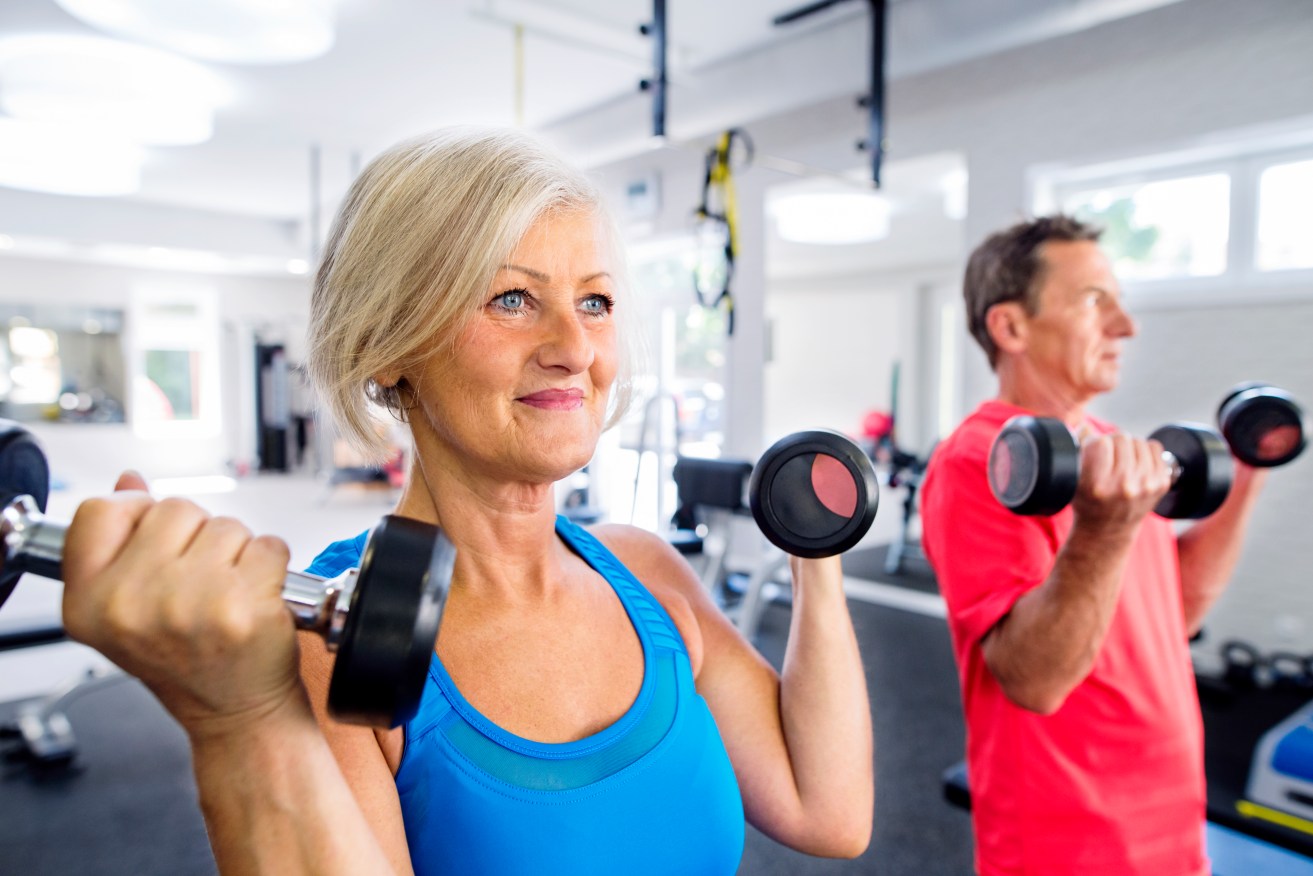Oestrogen boosts results of strength training in menopausal women


Strength training protects you against muscle and bone loss as you age. Photo: Getty
One of the many burdens of menopause – and just getting older – is a loss of skeletal muscle and strength.
Up to 20 per cent of bone loss can occur when menopause sets in.
Exercise, especially strength training with weights, helps curb the muscle loss associated with ageing in women and men.
But women have to work harder because menopause significantly speeds up bone loss and increases the risk of osteoporosis.
It is widely believed that oestrogen supplements are useful in preventing or alleviating this increased rate of bone loss.
A new study from Denmark has found that oestrogen supplements, in the form of a patch, improve muscle growth in women who also engage in strength training.
In other words, exercise plus an oestrogen supplement does a better job of protecting against muscle loss than exercise alone.
Previous studies into the relationship between oestrogen and skeletal muscle growth – see here and here – support the new findings.
The new study
The study involved 31 healthy, early menopausal women with no previous experience of weight training.
For 12 weeks, the participants wore either a placebo patch or an oestrogen patch on their abdomen – and three times a week they performed supervised strength training.
Associate Professor Mette Hansen, from the Department of Public Health, Aarhus University, said the group receiving extra oestrogen had significantly greater muscle growth – the increase in muscle cross-sectional area was 7.9 per cent, compared with 3.9 per cent in the placebo group.
That’s virtually a doubling of growth.
“The results add to the plus list when it comes to considering oestrogen therapy in the early stages of menopause,” Dr Hansen said.
“Furthermore, when looking at the analysis for muscle stem cells, the potential for muscle growth over a longer training period seems to be greater when oestrogen levels are elevated.”
Not keen on supplements? Exercise anyway
Research shows it is important to exercise during menopause, whether you choose to take hormone therapy or not.
“Although the increase in muscle mass was less in the women who did not receive extra oestrogen, there was still a positive trend in the placebo group,” Dr Hansen said.
“The research results thus also underline the fact that all women can optimise their risk profile through regular physical activity and should aim for following the recommendations for physical activity.”








